2024 Bar Examinations : Understanding Polemics…
- Par Brenda YUFEH
- 19 Apr 2024 14:23
- 0 Likes
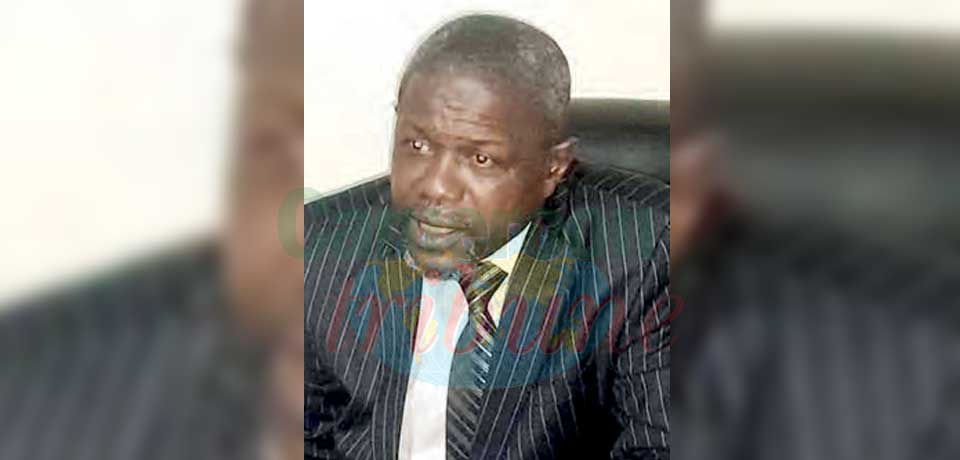
Days after the written part of the entrance examination into the Bar internship programme and the end of pupillage examination, reports from unidentified candidates over social media revealed that the conditions through which they undertook the exams were tedious. Candidates do not only decry the long duration of the exams which ended at about 3:30 a.m., but the deplorable environment in which they sat and wrote the exams. In the midst of poor sanitation and security challenges, some candidates reportedly lamented the inhumane conditions they went through. The President of the Cameroon Bar Association, Barrister Eric Mbah brings to the limelight the stakes and challenges encountered in organising the examinations which comprised of over 5,000 candidates.
Numerous negative reports have been made of the recent examinations to qualify as a trainee lawyer and at the end of pupillage training. Are these complains justified?
It is not just one exam that was organised. There were two; the entrance exam and the end of pupillage exam. The Bar is not the organiser of both exams. The examinations are organised by two organs. The Bar Association runs the grand jury (sets the questions and marks) and the rest is handled by the Ministry of Justice. The secretariat of the exams is headed by the Director of Judicial Professions at the Ministry of Justice. The choice of where the exams were written was taken by the Ministry of Justice. The Ministry of Justice negotiates and pays for the venues from the budget allocated by the government.
What really happened during the examinations?
Many things happened. But we overcame and the exams took place void of fraud. It is true that one of the examination halls had leakage problems, but the water was drained before the start of the session. No candidate should say that he or she wrote the exams while sitting on water. Water did not affect candidates who were writing the exams. Again, the issue about writing late into the night is not new. In 2003 when we wrote in our time, there were less than 1,000 candidates, but we finished at about 1:30 a.m. In 2014, the exams ended at about 3:00 a.m. This time around, we had around 5,321 candidates. Yes, we started writing late. When candidates come in the morning, to register all the over 5,300, verify their identity cards (ID) in a bid to avoid fraud, took a lot of time. The keys to certain examination halls arrived late. There was always one setback or the other which came up unwillingly and caused us to begin the exams late and drew into the night. Particular about the recent written Bar examinations is that we had two candidates who were visually impaired. We could not start writing when they were not ready. When the exams were set, we had to take the questions paper for experts to transcribe them on the brail. One of the visually impaired candidate was not using a brail, but his computer. We had to read the questions to him and he typed it on his customised computer. All of this contributed to the delay in the start of the examinations. But the major problem was the huge number of 5,321 candidates. Moreover, the questions are not multiple choice questions. The law indicates a particular way questions should be set. There are questions which required us to use a court verdict (judgement) which at times have about five or 10 pages. Imagine multiplying such a judgment to set questions for 5,000 candidates. This is about 25,000 to 30,000 copies of paper. This is a tedious process. If we decided to use another way to set the questions, we would have been accused of fraud. But I am happy so far, there is no issue of fraud, but delays in the writing process.
What was done to curb fraud?
Fraud is a common issue in exams organised in the country. As such, we did our best to avoid that. Instead of setting the exams questions before, we did so for both exams in the morning when the candidates were already seated. Then the questions were translated into the English Language for the Bar exam and into French Language for the Bar pupillage exam. We later on moved on to photocopy the required number of copi...
Cet article complet est réservé aux abonnés
Déjà abonné ? Identifiez-vous >
Accédez en illimité à Cameroon Tribune Digital à partir de 26250 FCFA
Je M'abonne1 minute suffit pour vous abonner à Cameroon Tribune Digital !
- Votre numéro spécial cameroon-tribune en version numérique
- Des encarts
- Des appels d'offres exclusives
- D'avant-première (accès 24h avant la publication)
- Des éditions consultables sur tous supports (smartphone, tablettes, PC)






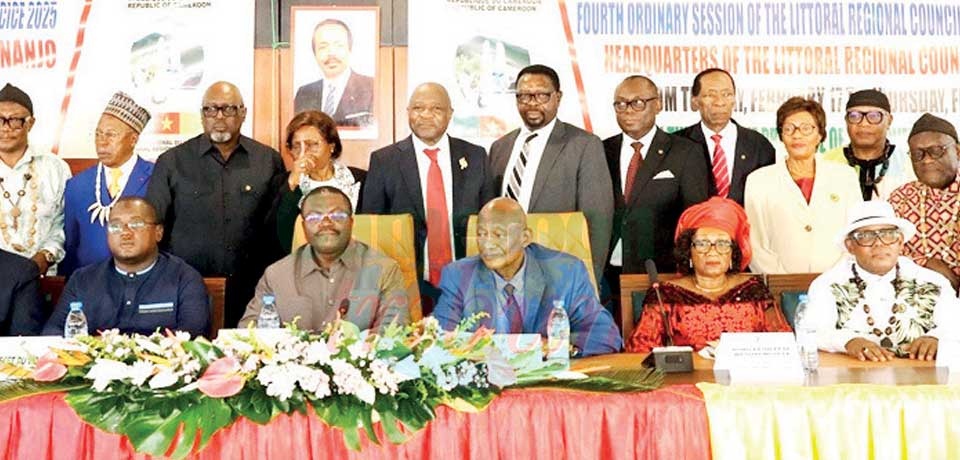
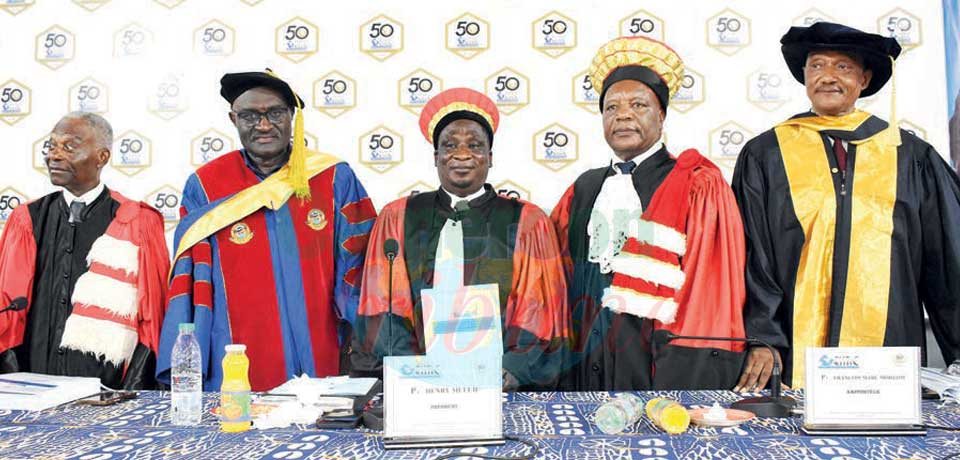
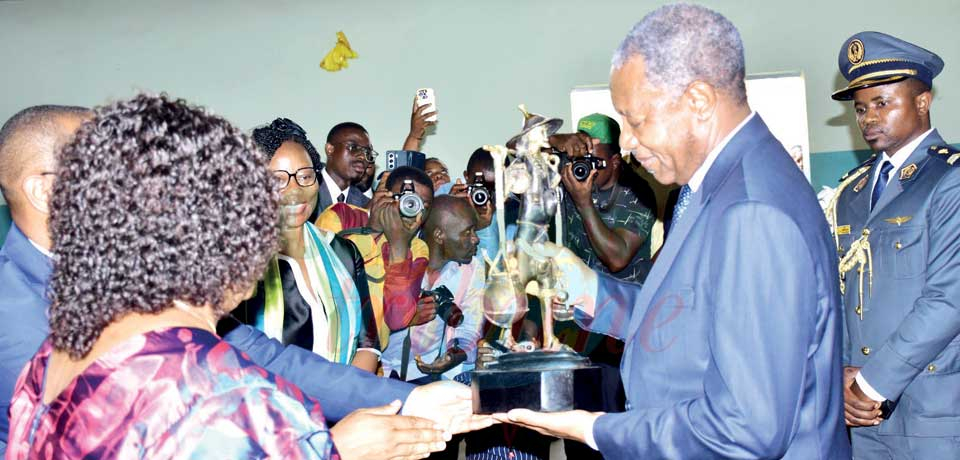
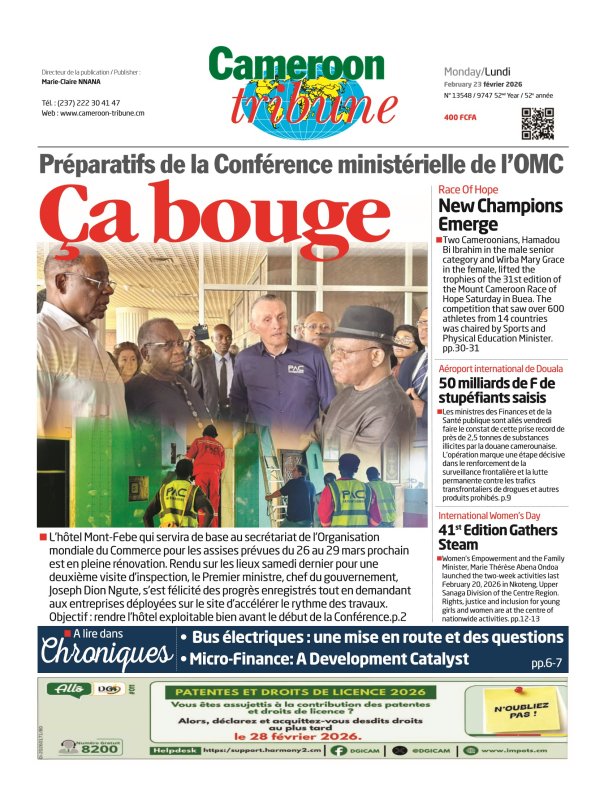




Commentaires